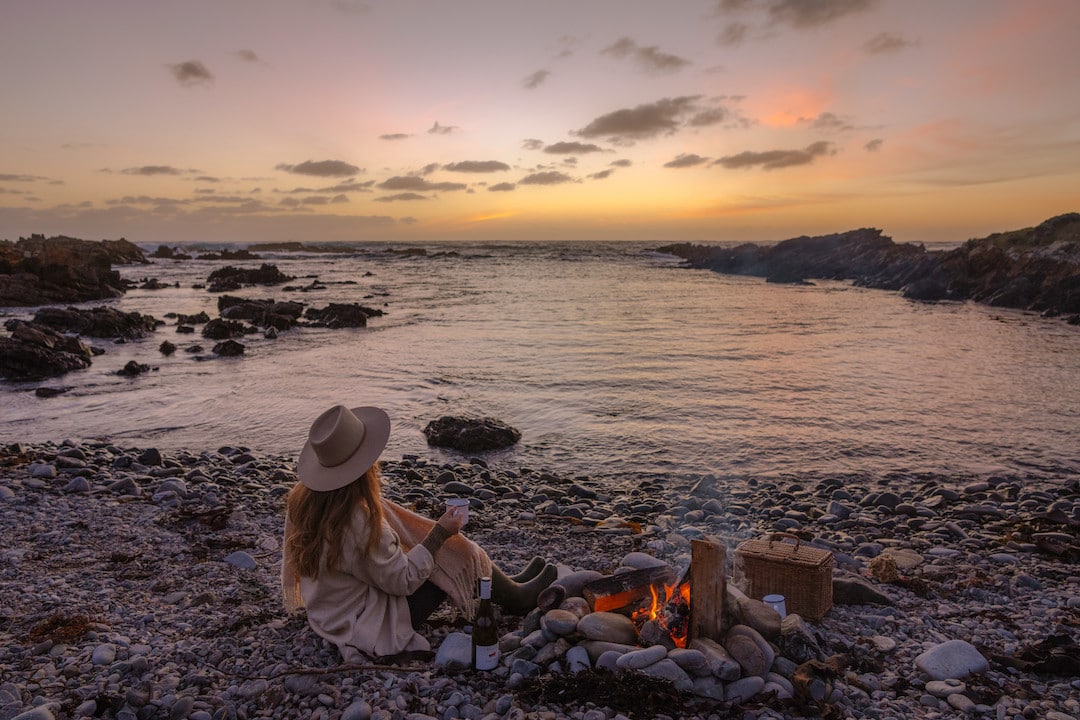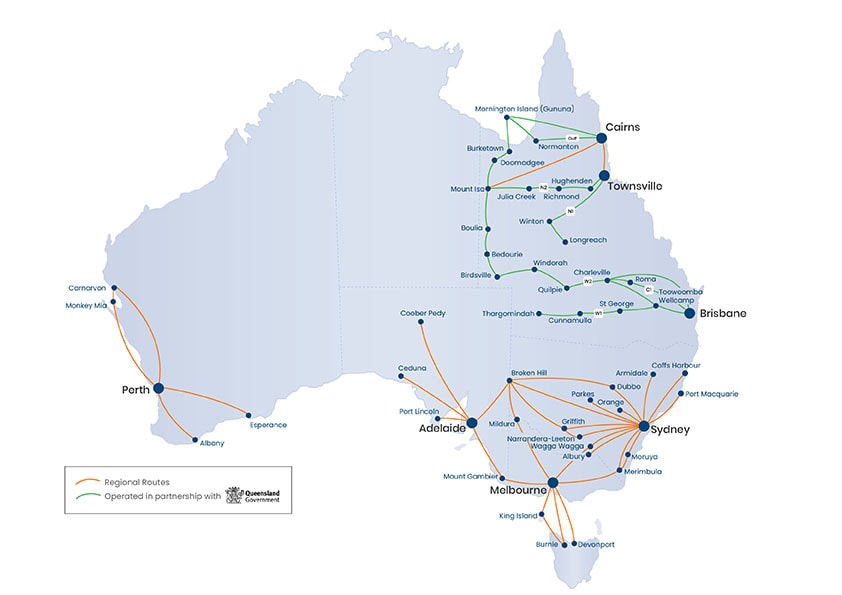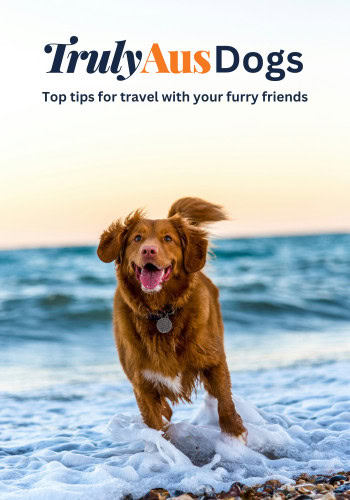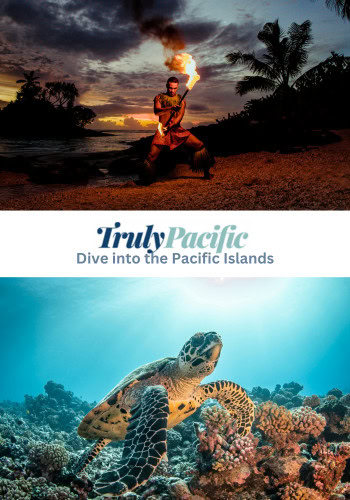Most people know King Island for its cheese, beef and golf courses with some of the best views of any in the world, but the sense of community and the warmth of welcoming residents will also steal your heart.
It’s a working farming island, and a nature-lovers paradise, so most of the activities revolve around produce and the great outdoors.
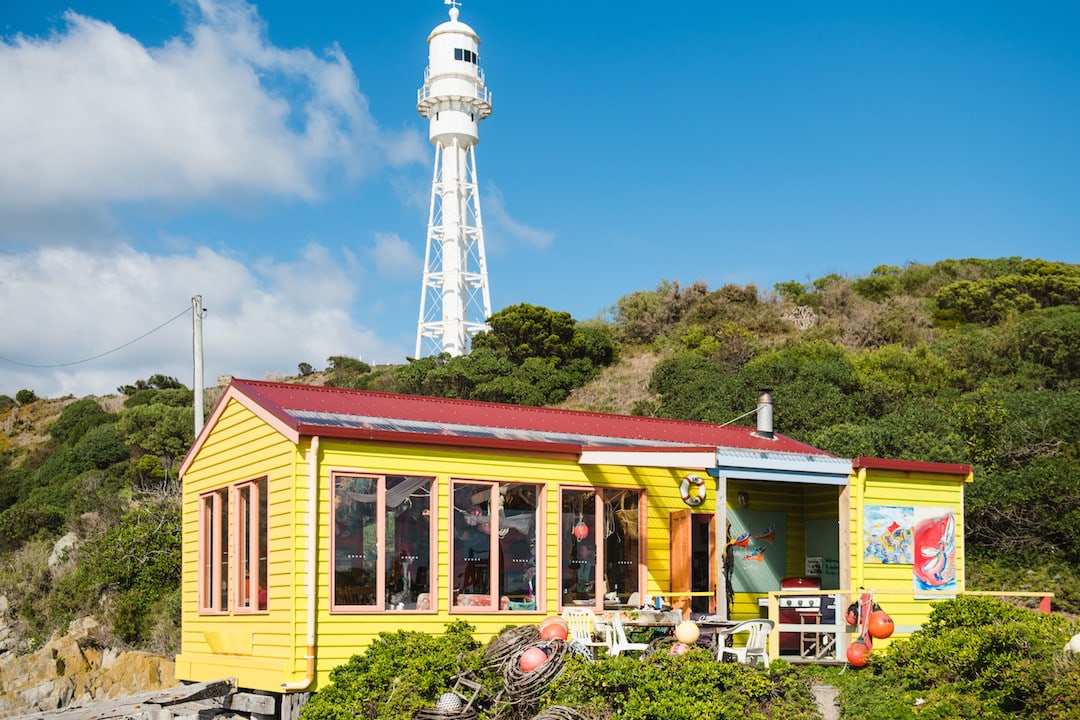
Currie Boathouse
Funnily enough, one of the best restaurants on King Island is the restaurant with no food. It’s also known as the Currie Boathouse due to it being on the harbour in the main town of Currie. Sounds strange right? But not when you discover what it is and how it came to be.
Local artist Caroline Kininmonth conceived the idea around two decades ago. The boathouse was originally used to store the lightkeepers boat, and then as a school and for storing ammunition during world war II. Sadly, it burnt down, and so Caroline decided to resurrect the derelict building as a restaurant that locals or tourists could frequent, armed with their own food and drink.
It’s painted in eye-popping fluorescent yellow and decorated inside and out with Caroline’s signature artworks – usually whimsical depictions of King Island and its landmarks. The eclectic pieces that adorn the space were lovingly sourced from op-shops or made from local treasures. It’s filled with lounges and dining tables, complete with wine and water glasses, potted flowers and plants. There are rugs on the floors and cushions to lay back on as you take in the amazing harbour views.
World-famous chef Tetsuya Wakuda has even cooked up a storm there – local beef, cheese, abalone and lobster was on the menu. He’s not the first chef and certainly not the last to fall in love with what is now an iconic venue symbolising the resilience, resourcefulness and creative nature of the locals.

King Island Garlic
Who doesn’t love garlic? Carmen Holloway is known as the Garlic Queen of King Island due to her annual crop of around 15,000 organic bulbs, and the fact she’s spent decades of her life collecting, researching and trialling garlic. Her garlic has no herbicides, pesticides, fumigants, bleach or GMO, and food-lovers from all over Australia order it direct.
Carmen is a permaculturalist and her husband James is a beef farmer and together they have created Frogshack Farm, which offers great tours around the property. For more than twenty years they have been continually re-establishing wildlife habitats that once existed on their property. The family has 600 acres for their cattle and 15 acres they’ve set aside for a permaculture farm and an ongoing organic environmental experiment. There are chooks free-ranging in the abundant veggie patches, guinea pigs foraging through the undergrowth (they’re great lawn mowers apparently) and bees producing honey by the gallon. There’s a dazzling array of edible plants and trees — nectarine, lemon, lime, plum, cherry, apple, apricot, walnut and quince, and an impressive avocado plantation.
There’s also a special wetland habitat attracting rare frogs to the property, thus their business’s name: Frogshack Farm.
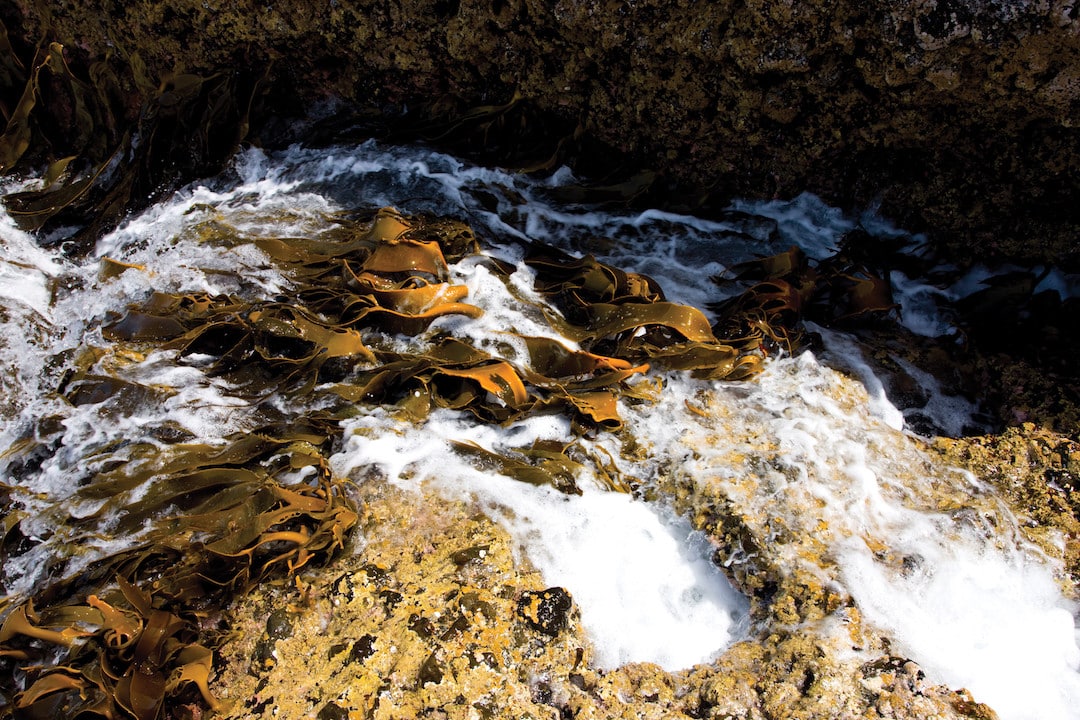
Kelp in King Island
Now to kelp. Kelp is in more products than people realise, and is in high demand – it’s a foaming agent in beer and a binding agent in things such as cat food, toothpaste, shampoo, salad dressing, cakes, dairy products, frozen foods and even pharmaceuticals. The cows on King Island also love to eat it, as it gives a dose of vitamins and minerals that keeps them healthy. Another reason why the beef here is so good.
Kelp is big business on King Island, and it’s one of few places in the world where giant ‘stormcast’ bull kelp washes up by the truckload. It only grows in extremely cold water in places such as Tasmania, Chile, Norway and Iceland, and although it doesn’t have a root system it suctions on to the reef, so it takes big muscles and a tough winching system to remove it. But the kelp collectors on King Island only take what is washed up on shore and its illegal to remove it from the ocean, as that would destroy the eco system that it thrives on.
Kelping is a great way for King Island families to make money, and those in the know keep a close eye on the weather reports. They’re straight into their trucks when there’s be a haul ready and waiting, and a truckload of kelp can be worth about $1,500.
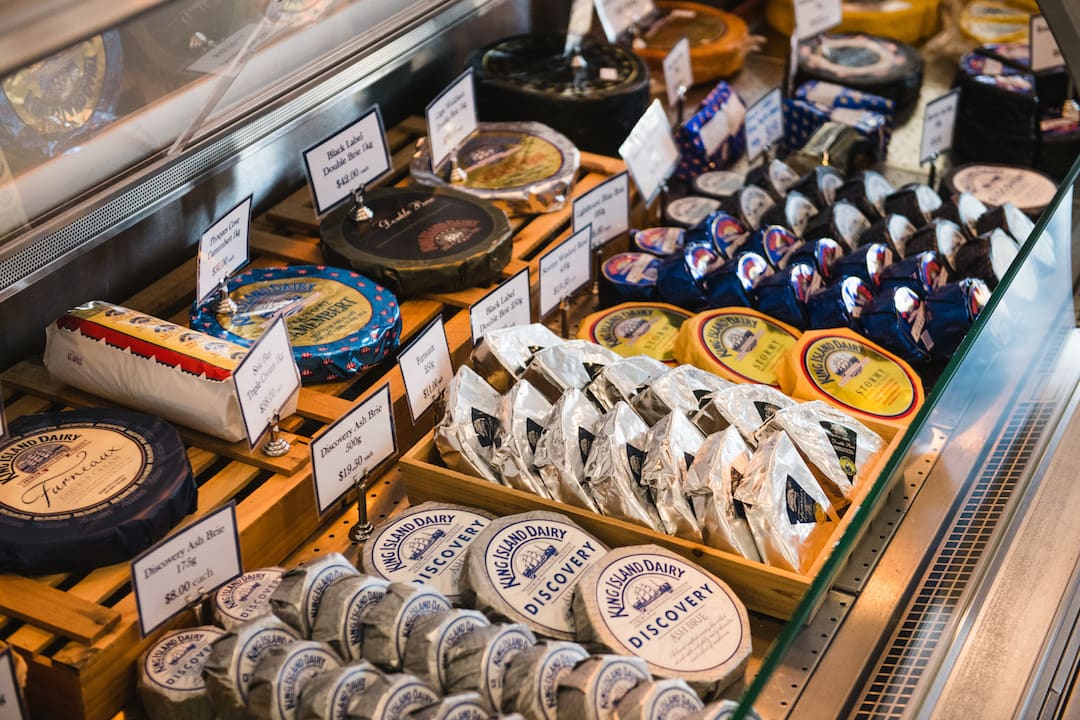
King Island Dairy
Now to something most people love King Island for – cheese. You would have had to have been living under a rock to have not come across King Island Dairy’s Brie, Camembert, cheddar and blue cheeses. The island’s mineral-rich soils, cool climate, abundant rainfall and consistent salt spray create incredibly lush pasture thats perfect fodder for cows, meaning the local herds produce unusually rich milk.
King Island Dairy collects milk from just a handful of nearby farms, meaning it’s as fresh as it comes – straight from cow to dairy on a daily basis, from paddock to factory within a few hours. The dairy has been producing cheese and cream for more than 100 years, and when you add cheesemakers with a passion for culinary perfection to the story, the result is some of the best cheese in Australia, if not the world. The business produces around 2000 tonnes of cheese a year, as well as employing around 100 locals.
Visitors to the Cheese Store can indulge in a tasting of all varieties straight out of the factory across the paddock. Choose some cheese for a platter, match it with a Tasmanian wine or beer, and sit on the Cheese Store’s farm-style veranda and take it the wonderful surrounds.
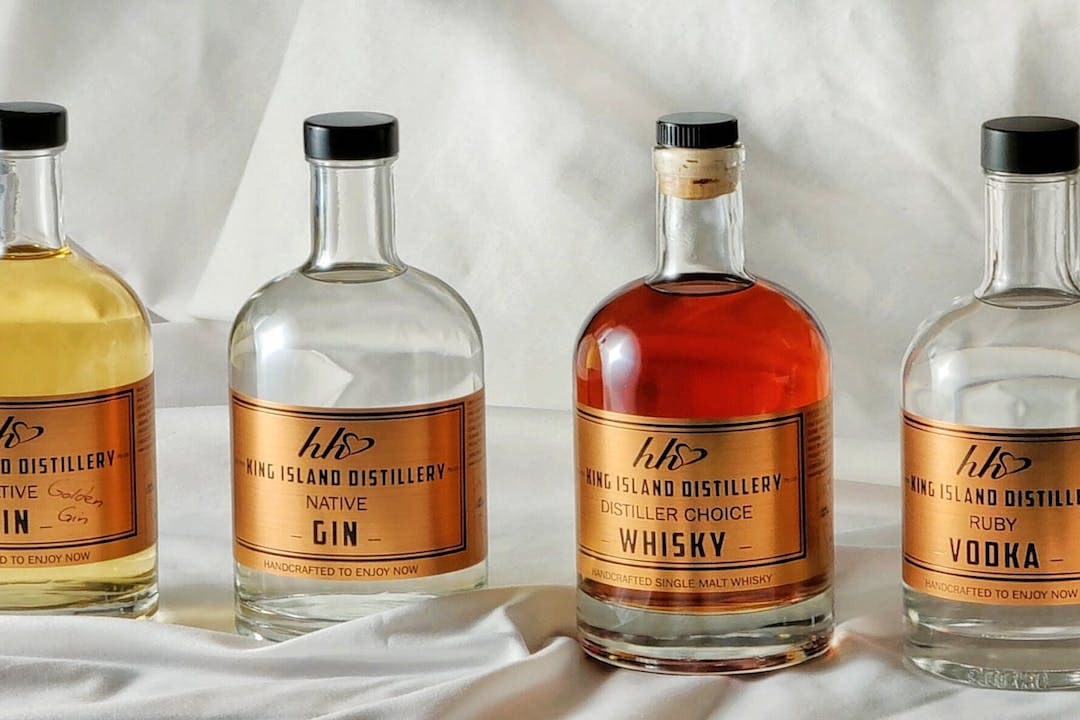
Heidi Weitjens King Island Distillery
If you enjoy spirits (in particular whiskey and gin), you must visit Heidi Weitjens King Island Distillery. Heidi also makes an amazing grapefruit vodka and a awesome limoncello. She picks all of her own botanicals from the rugged coastline of King Island, and the spirits are made from rainwater that is bottled by another local – Duncan McFie.
He is the founder of King Island Cloud Juice, which does small batch bottling of King Island rainwater. As he says – it some of the cleanest water in the world, and thanks to the strong westerly winds known as the Roaring Forties, it rains around 180 days per year. In his own words, “The character of Cloud Juice changes with temperature, from sweetly refreshing when chilled, to an elegant velvet when served at room temperature”.
The company produces a 750ml version in a wine bottle, and proudly proclaims that it is made and designed to be on the finest dining tables in the world. They’ve calculated that there are 9,750 drops of pure rainwater in every bottle, and 45mg of minerals in a litre of Cloud Juice. This super low TDS (which means total dissolved solids) makes it a uniquely young water with a light taste. In comparison for instance, Evian from France has 375 mills per litre.
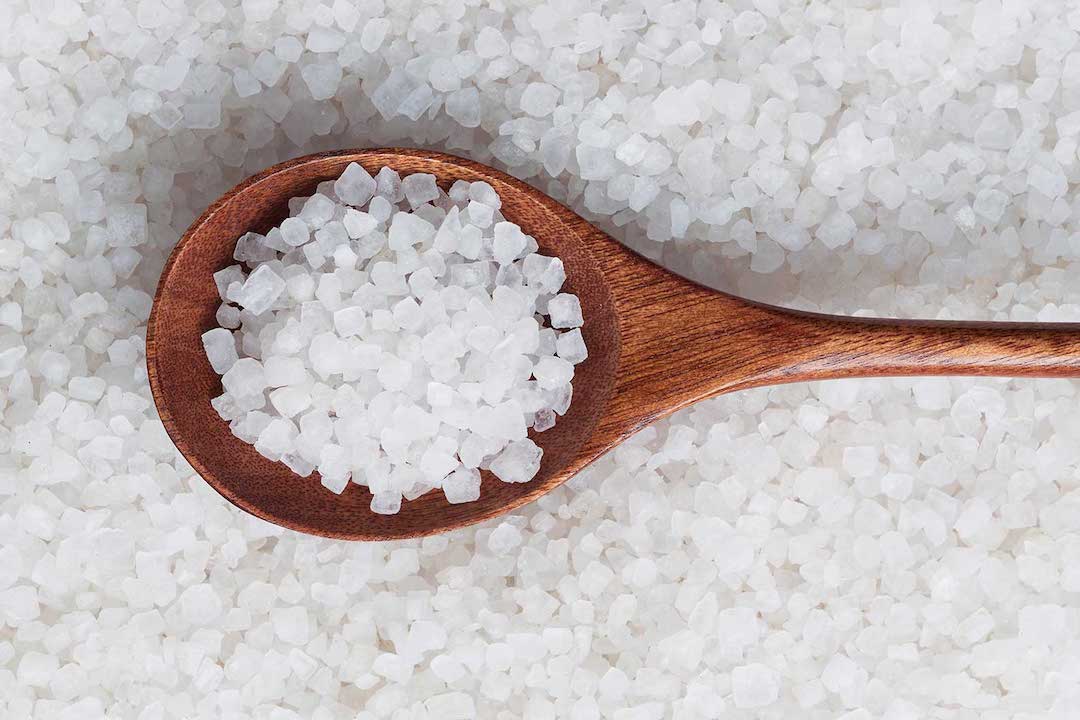
King Island Sea Salt
Tanya and Ernie Laurenson own King Island Sea Salt. Tanya discovered their special salt while walking on the rocks near her home in the town of Grassy. The waves crash on the rocks and into hollows, and when the tides recede and the water dries up, handfuls of salt are left behind. One day she took some home, left it for days to further dry out, and she was left with a fine sea salt that had a wonderful taste.
Tanya now produces in a hothouse, that is gravity fed from the tank of seawater on the back of husband Ernie’s truck. She began selling it at local markets, the gas station, and in boutique stores in Tasmania. Then a federal member visited from Canberra and saw it at the gas station where Ernie works. He had a chat to him about it, had a taste and was blown away. He took some back to Parliament House where it was handed out in gift bags for visiting dignatories.
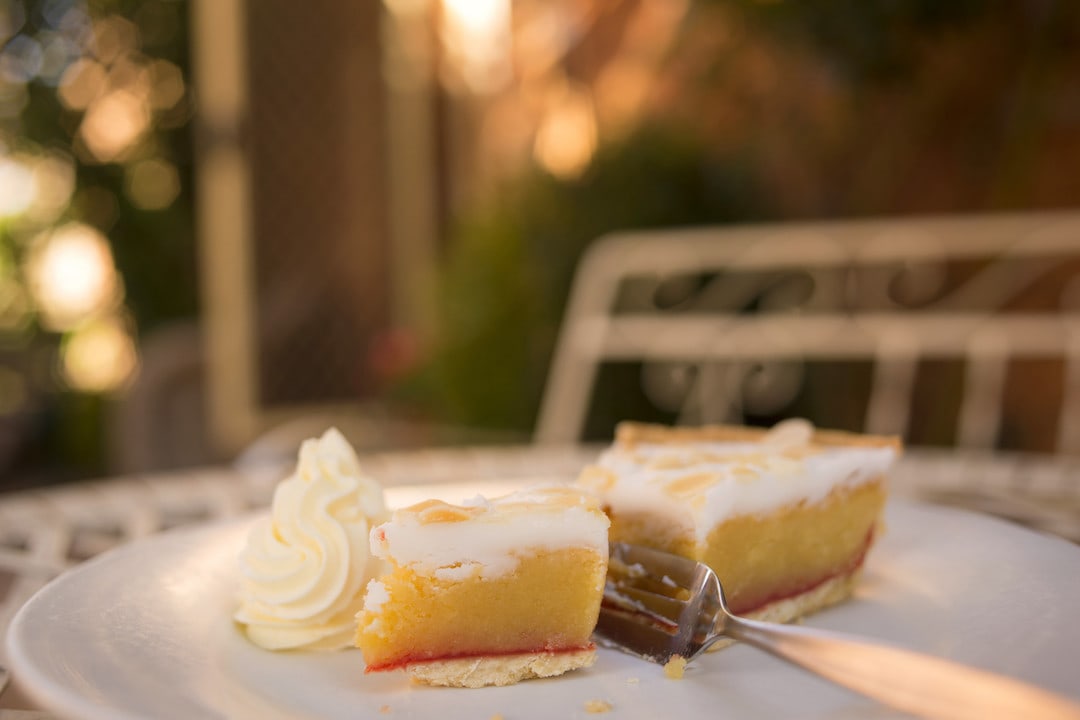
King Island Bakery
You can’t visit King Island without stopping by the Currie King Island Bakery that produces 20 different types of pieces (including its famous lobster pie), bread, cakes, puddings, shortbread and so much more. They also serve daily lunches with great rolls on the menu such as Turkish rolls filled with fresh chicken schnitzel, avocado, coleslaw, lettuce and cheddar cheese, and chicken, cheese & gravy rolls.
You can get some of the best beef in Australia from King Island, and you can immediately see why – pure air and water, green pastures and meat that no use of hormones, antibiotics or GMOs. King Island Beef is an umbrella company that brings together some of the island’s best beef producers, and you can buy it at the local supermarket and King Island Butchery in Currie.
For more delicious offerings in Tasmania, check out these articles!

